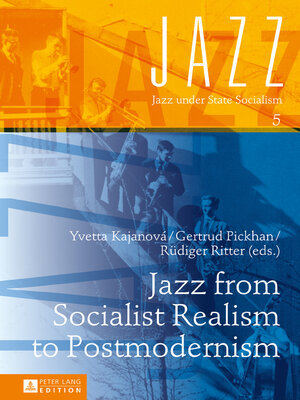
Sign up to save your library
With an OverDrive account, you can save your favorite libraries for at-a-glance information about availability. Find out more about OverDrive accounts.
Find this title in Libby, the library reading app by OverDrive.



Search for a digital library with this title
Title found at these libraries:
| Library Name | Distance |
|---|---|
| Loading... |
In the 20th century, jazz was an important artistic form. Depending on the particular European country, jazz music carried different social, political and aesthetic meanings. It brought challenges in the areas of racial issues, the politics of the Cold War between East and West, and in the exploration of boundaries of artistic freedom. In socialist Czechoslovakia, Yugoslavia, Hungary and Poland, the situation began to change after 1956 and then 1968, when the ideologists shifted from the aesthetics of socialist realism to postmodernism. In Western countries such as France and Italy, jazz transformed from a modern to a postmodern period. This volume deals with the impact of these changes on the career development of jazz musicians – even beyond 1989 – in terms of various phenomena such as emigration, child prodigies, multiculturalism, multi-genre approaches, or female jazz musicians.







